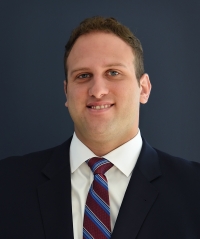Even if a waiver does not occur, communications otherwise protected by the attorney-client privilege can nevertheless be deemed discoverable if the crime-fraud exception applies. The crime-fraud exception permits access to otherwise privileged communications and work product when they are used in furtherance of an ongoing or future crime. In re Grand Jury 705 F.3d at 138. The relationship between the attorney-client privilege and the crime-fraud exception is concisely stated by the Supreme Court of the United States:
The attorney-client privilege must necessarily protect the confidences of wrongdoers, but the reasons for the protection – the centrality of open client and attorney communication to the proper functioning of our adversary system of justice – ceases to operate at a certain point, namely where the desired advice refers not to prior wrongdoing, but to future wrongdoing.
U.S. v. Zolin, 491 U.S. 554, 562-63 (1989).
In order to bypass the attorney-client privilege, the party seeking the communications must satisfy a two-part test. First, the movant must make a prima facie showing that the client was committing or intending to commit a fraud or crime. Second, the movant must also show that the communications at issue were in furtherance of that alleged crime or fraud. In re Grand Jury Subpoena, 223 F.3d 213, 217 (3d. Cir. 2000).
The evidence provided must meet a reasonably demanding standard that demonstrates a basis to suspect the perpetration of a crime or fraud. In re Grand Jury 705 F.3d at 153. Speculation or evidence that shows a distant likelihood of corruption is not enough to satisfy the reasonable basis standard. In re Grand Jury Proceedings, 417 F.3d 18, 23 (1st Cir. 2005).
A movant does not have to show that an attorney is actively participating in the crime or even have knowledge of the alleged fraudulent scheme. Instead, the court’s focus is on the client’s conduct. Courts have been wary to base their decisions deeming communications discoverable under the crime-fraud exception solely on the communications’ substantive content. Rather, there must be existing evidence to demonstrate that the client acted on the communication with fraudulent intent. A client must knowingly seek counsel to further a continuing or future crime in order for the crime-fraud exception to apply. United States v. Doe, 429 F.3d 450, 454 (3d Cir. 2005). The movant must show that the client misused or intended to misuse the attorney’s advice in furtherance of an improper purpose. See In re Grand Jury 705 F.3d at 157 (citing In re Grand Jury Investigation, 445 F.3d 266, 279-80 (3d. Cir. 2006).
Courts apply a strict standard in applying the crime-fraud exception, and the movant must have self-sufficient evidence of fraud prior to the attorney-client communication being circumvented. Courts have only applied the crime-fraud exception when there has been overwhelming and deliberate indicia of a fraudulent scheme. See Tindall v. H & S Homes, LLC, 757 F. Supp. 2d 1339 (M.D. Ga. 2011). The Tindall court addressed communications that were allegedly in furtherance of fraudulent transfers. In that case, the court conducted an in camera review of documents at issue to determine whether the crime-fraud exception applied. The Tindall court found that the movant satisfied the standard since one document expressly stated that the transferor intended to avoid claims of successor liability. Id. at 1363.
A federal district court in Michigan justified applying the crime-fraud exception based on a similar rationale to Tindall. In re Rosich, 561 B.R. 668 (W.D. Mich. 2016). The Rosich court concluded that the movant sufficiently pled a prima facie showing that his adversary’s attorney advised his clients to effect a real estate transfer for the purpose of defrauding the movant. Id. at 671.
Therefore, in order to circumvent the attorney-client privilege based on the crime-fraud exception, a movant must present sufficient evidence to show that communications at issue furthered their opponents’ scheme to commit or attempt to commit a crime or fraud. The courts are reluctant to find communications discoverable without strong pre-existing evidence of fraudulent intent on the rationale that doing so prevents litigants from undermining the attorney-client privilege. Absent such a prima facie showing of fraudulent intent, litigants could conduct fact-finding expeditions in hopes of discovering a “smoking gun” communication that would further an otherwise unsupported claim of fraud.
In conclusion, the crime-fraud exception is a valid means of obtaining information that is typically kept sacrosanct between an attorney and his or her client. However, it cannot serve as a substitute for developing a self-sustaining fraud claim. A litigant must clearly demonstrate a connection between fraudulent intent and the communications at issue before a court will justify circumventing the almighty attorney-client privilege.
Gabe Montemuro is an Associate with Antheil Maslow & MacMinn, LLP in Doylestown, PA. His practice focuses on litigation, including commercial litigation, personal injury, estate and employment law. His practice also includes real estate and land use matters.





















